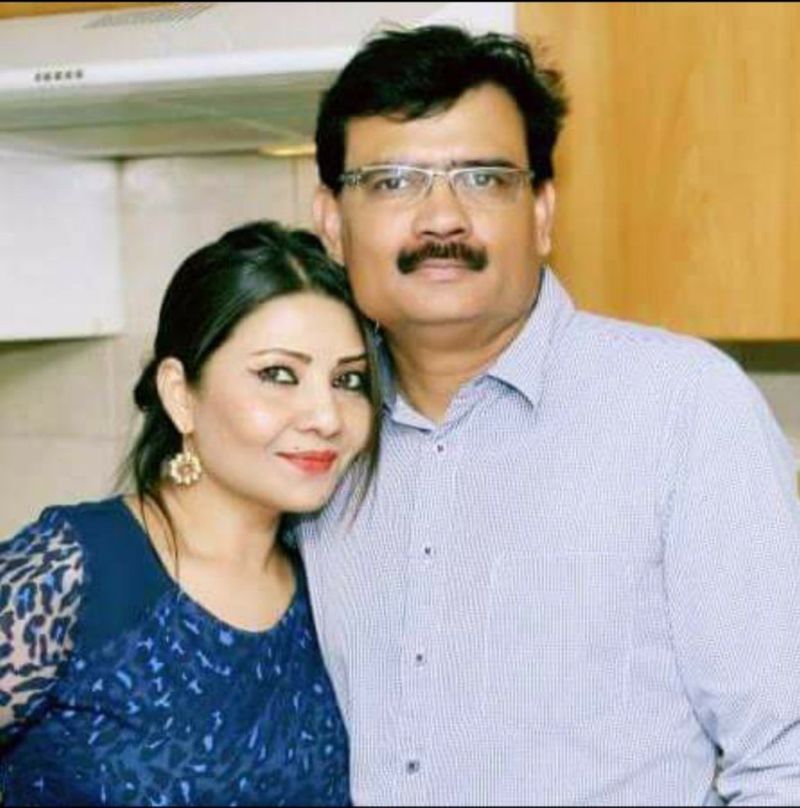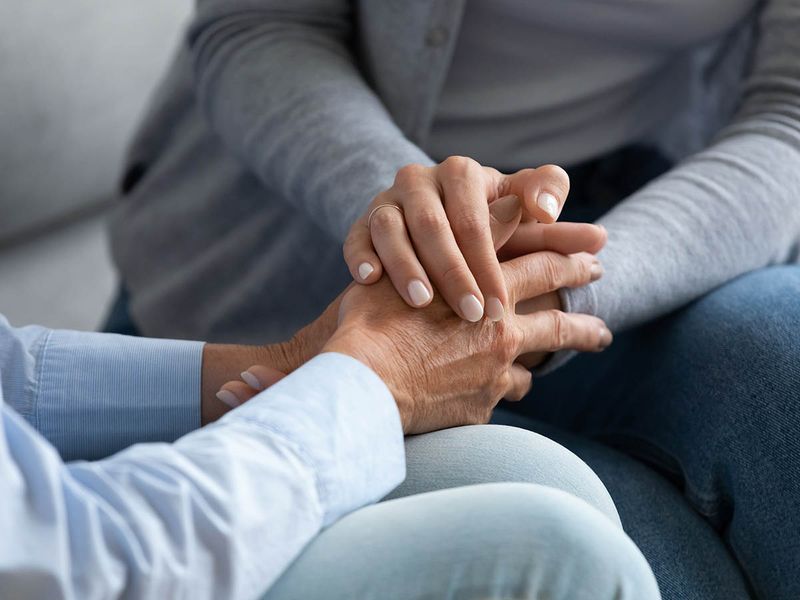Dubai: In the last one year, the world has witnessed more than 3.32 million deaths due to the COVID-19 pandemic. Wherever we may be, each one of us is likely to have lost either an acquaintance, a friend, a member of the family or a really dear person.
Bereavement, that used to be just a part of our lexicon, has now jumped out and is a heartrending reality as people are finding no time to deeply mourn their loss and come to terms with the devastating reality. Even the news of high numbers of COVID-19 deaths of unrelated people has triggered a morbid sense of mourning in people.
Take the case of Dubai resident Jogiraj Sikidar, founder of the Malhar Centre of Performing Arts, who lost his brother-in-law, a few friends and their parents. He told Gulf News: “Of my 15 school friends, at least six or seven had parents or relatives affected by the virus. I dreaded opening group chats, as not a day passed without knowing of a death of a loved one. I was constantly sending condolences to family and friends. In every family, there were a few COVID-positive cases and some of them were fighting for their lives. My brother-in-law was in his mid-40s and he was running around arranging beds for his mother and sister, when he turned positive. While his mother and sister battled for life in the ICU, sadly, he passed away. I also lost my school friend, sitar maestro Prateek Chaudhary, in Delhi. Prior to that, Prateek’s father, another well-known Indian sitar maestro, Debu Chaudhary, died of COVID complications and within a week, my school friend too succumbed. Imagine the family’s state, losing both men in a span of a week. Prateek left behind a 12-year-old child. I am devastated. Only music helps me destress and cope with the profound agony of losing friends, family members and people of my extended family in Delhi,” said an anguished Sikidar.
Isolation makes matters worse
Bereavement has become further complicated during the pandemic due to lockdowns and travel bans. While these measures are essential to break the chain of transmission, they do prevent people from being with their loved ones in such trying times.
Tanya Dharamshi, clinical director and counselling psychologist at Priory Wellbeing Centre, Dubai, explained: “When a loved one passes, we often engage in rituals that support the process of grieving and allow us the ability to say goodbye to the departed soul, with friends and family by our side. Coping with the loss of a loved one can be extremely challenging and emotional even at the best of times, but during a pandemic, these feelings can only be exacerbated, particularly with the overwhelming feeling of isolation.
“Through the various emotions we may experience during the loss of a loved one, we often seek solace, support, comfort and strength from family and friends. With the current physical-distancing measures, we are not able to connect physically, leaving many feeling extremely isolated and alone.”
Seeking the elusive closure
Indian expatriate Neha Singh Dubey was in a similar situation. She lost her 75-year-old mother-in-law, Pushpalata Dubey, on April 27 and could not even attend the funeral in Delhi. A devastated Singh told Gulf News: “My mother-in-law was absolutely healthy and had no co-morbidities. My husband Alok shared a very strong bond with his mother. She tested positive on April 22 and before we could actually help her, she breathed her last,” said Singh who was advised not to visit Delhi for the funeral with her husband owing to the situation there.

Image Credit: Supplied
“Although we understand that death is inevitable and one has to expect this final separation from a loved one, we are still trying to find closure as we never got the chance to grieve with our loved ones.”
Coping with bereavement
Jyoti Karmali, another Dubai resident who lost her first cousin Seema Jalan to COVID-19, still cannot get over the shock. “There is so much sadness that it is overwhelming. My cousin Seema, 55, who had dedicated her life to working for street children in Kolkata, could not be saved despite the best efforts of her family. I was looking forward to meeting her for her daughter’s wedding soon, we were very close. Her husband had arranged all the oxygen cylinders at home, but sadly, those could not be used. She died within ten days of her testing positive. We grew up together. It’s not just her, every day, one hears of friends and acquaintances falling prey to COVID-19 and there is so much helplessness back home in India. For many days, I could not even make sense of my grief or talk about it,” she recounted.
This is a feeling echoed by most in this situation. Bereavement and the deep wounds it inflicts are difficult to heal. So, how does one navigate this challenging phase in life? Is there a way for people to pause, take a step back and mourn the deaths that are happening around us?
Accepting death as a reality
Dr Saliha Afridi, clinical psychologist and managing director of The Light House Arabia, said the first thing for people is to accept death as a reality and learn to go through grief as one would with any other emotion. “People who have lost someone among their friends or family as a result of COVID-19 are most likely experiencing many feelings, including grief, guilt, powerlessness, and anxiety. They need to realise a few things.
* This is not a ‘phase’, rather, a normal reaction to losing someone you cared for.
* Grief will be experienced by different people in different ways.
* You don’t get over grief, rather, go through it and learn to live with it.

Image Credit: Shutterstock
* The first six to eight weeks after the loss of a loved one are the most difficult because psychologically, you are still adjusting to a new reality. You can experience many emotions during this time, including denial, anger and sadness.
* “Grief comes in waves and it is a spiral, lifelong journey. Some days, the emotions are too overwhelming and tend to knock you over, while on other days it comes and gently taps your feet,” said Dr Afridi, who has also founded the Raymee Grief Center, an initiative of The Light House Arabia.
What is compassion fatigue?
Dr Afridi said: “Compassion fatigue is a condition characterised by emotional and physical exhaustion leading to a diminished ability to empathise or feel compassion for others, often described as the “negative cost of caring”. It can also be referred to as vicarious trauma or secondary traumatic stress.
Managing bereavement-related stress
* Although you cannot see pain and grief, treat it like an acute, open wound. Be gentle, nurturing yourself during this time.
* Take care of your physical needs. Maintain a sleep routine, gentle movement like yoga or a light walk, and eat right as a way to nourish your body. These things might seem impossible, but when the heart and mind are overwhelmed, it is the body that will help walk us through the valley of grief.
* Reach out to a supportive person. Grief was never meant to be carried alone. It will be important to speak about it or at least be around those who you can speak to if the need should arise.
* Try to maintain a normal sense of routine and rhythm in your day. The formula for anxiety = uncertainty + powerlessness. Routines create a sense of certainty and containment at a time when everything feels uncertain.
* Don’t make any new big changes to your life for at least six weeks. This could include quitting your job, marrying or divorcing, or moving. Better to get some mental and physical space from the traumatic event before taking any more life altering, big decisions.
* Give yourself a break from grief. While you have to work through it, you do not need to focus on it all the time, especially at the beginning. Find distractions like working, watching movies, being with friends and other safe people for dinner, going for a walk in the park, reading a book or going to the spa.

Image Credit: Shutterstock
* Avoid mood-altering substances that can further depress you and overwhelm you.
* Do not feel you have to do the ‘work of grief’ right away. If you are feeling numb, don’t force yourself into engaging with the feelings until you are ready. The mind has a way of protecting us from difficult and overwhelming emotions by dissociating us from them until we get some distance from it. It would be important to continue to do bodywork like breath-work or yoga, or gentle exercise so you can remain in your body and not totally dissociated from it.
* Avoid following the news. You can re-traumatise yourself by watching some of the news images, so it is best to avoid it all together.
* Know that guilt is a normal reaction to grief. Feeling like you could have done or said something is a normal reaction to grief. Show yourself self-compassion by treating yourself the way you would a grieving friend.
Does bereavement trigger Post Traumatic Stress Disorder (PTSD)?
Most people who lose a loved one prematurely or suddenly are faced with Post Traumatic Stress Disorder (PTSD) that can cause major deterioration in the quality of life and interrupt an individual’s interactions with others and cause serious productivity loss. PTSD was something that soldiers back from war always had to deal with after having been through the shock of violence, aggression and witnessing death and gore.
Dr Afridi explained: “When a traumatic event takes place it is very normal for a person to experience an acute stress reaction which is a psychological response one goes through after experiencing some sort of trauma. It is the mind’s way of coping with feelings of intense helplessness. This becomes ‘Acute Stress Disorder’, if the reaction persists for over two days.”
Typical symptoms of PTSD include:
Feeling numb or dissociated from what is happening around them.
De-realisation, which occurs when your environment seems strange or unreal to you.
De-personalisation, which occurs when your thoughts or emotions don’t seem real or don’t seem like they belong to you; having recurring images, thoughts, nightmares, illusions, or flashback episodes of the traumatic event.

Image Credit: Getty Images
Feeling like you’re still reliving the traumatic event.
Feeling distressed when something reminds you of the traumatic event, avoiding people or places that remind you of the traumatic event, having symptoms of anxiety such as trouble sleeping, feeling on the edge, unable to concentrate, get easily startled.
Dr Afridi added: “These symptoms can last for a few days to a few weeks as an Acute Stress Disorder. If the symptoms last longer than a month, they may be diagnosed with PTSD. Both ASD and PTSD require clinical treatment. This can include psychotherapy and/or medication.
How to honour death of a loved one?
• Ensure they are not forgotten — therapeutic activities are key. Think and reminisce about the past — happier times, celebrations, holidays etc. Share memories with friends and loved ones, no matter whether it’s over the phone, or via a video call. Collate photos and videos, create a memory box of items that help symbolise your life together.
• Write a letter to say goodbye. This allows you the opportunity to communicate what you would have liked to say to your loved one.
• Keep a grief journal. Spending 15 minutes on this a day will help you express your emotions in a non-judgemental space. If expressing your emotions with words is challenging for you, try identifying all the positive qualities that your loved one possessed and how they have impacted your life in a positive manner.
• Engage in communication with your family and loved ones. Even if you do not feel like it, the need to stay in touch with family and friends is vital. Schedule regular chats via a video call. You may not want to talk about your loss, but simply communicating with others will provide time to connect on other topics and help take your mind off your feelings. In the current situation, many are grieving a loss in some capacity and communicating with friends and loved ones will help to normalise the emotions you may be going through.
• Be kind to yourself. Appreciate the unprecedented circumstances we are currently living in and acknowledge how you are managing to get through each day. Allow yourself time to feel the emotions and give yourself permission to go through the journey of grief. Resist the urge to numb or remove the pain. Observe how the grief is manifest in your body, acknowledge the hurt and loss and be compassionate to yourself.
• Talk about your loved one: Sharing memories and moments, even if via online platforms, allows connectivity with others and engagement in some of the rituals that may have occurred if you had ‘physically’ attended the funeral.
— Source: Tanya Dharamshi
Like Our Facebook Page For Latest News




